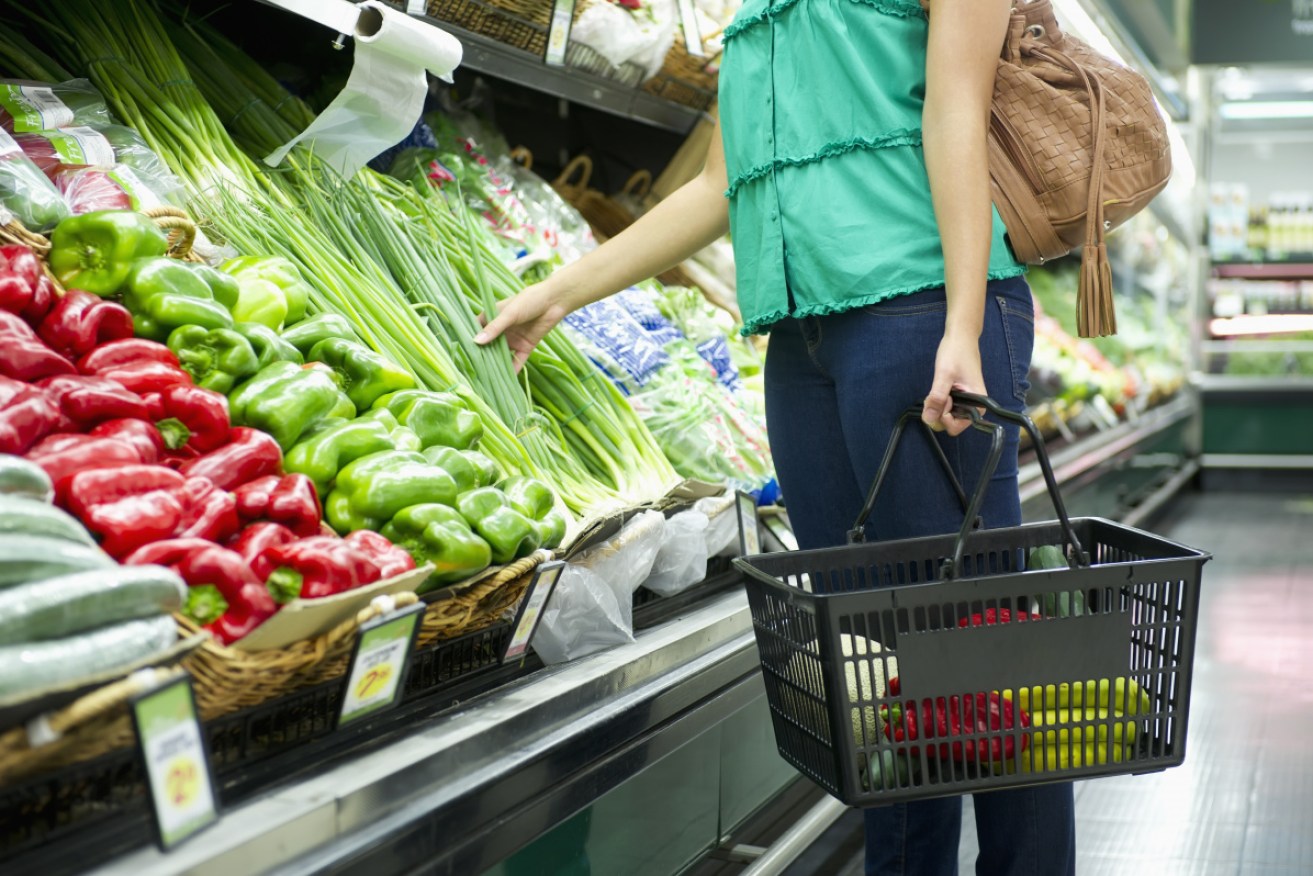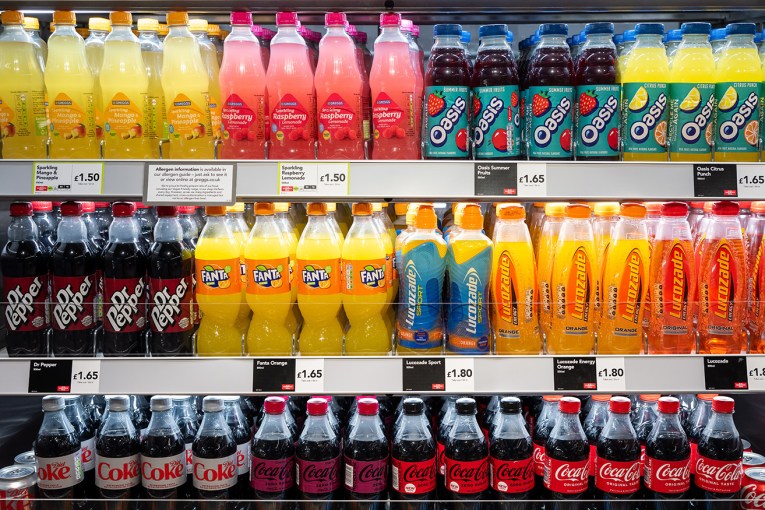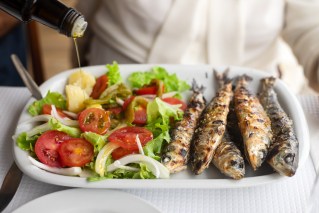Coronavirus and cooking: How to handle food without making yourself sick


Shoppers are encouraged to thoroughly wash all fresh produce with water (but skip the soap. Photo: Getty
The coronavirus outbreak isn’t the only thing we need to worry about when it comes to grocery shopping, according to the Food Safety Information Council.
Many shoppers are already taking the extra precaution of wiping down products with antibacterial wipes before bringing them into the home.
But as the frequency of home-cooked meals increases, so does the risk of food poisoning.

The council advises shoppers to use bags and avoid placing fresh produce straight into carts. Photo: Getty
Incorrect storage and handling of food places a significant burden on the Australian healthcare system each year.
The council estimates that out of the 4.1 million cases of food poisoning each year, more than 31,000 people will require hospitalisation.
Given that hospital resources are stretched thin as it is, ensuring safe handling and storage of food is crucial.

Food poisoning places a huge burden on the Australian healthcare system. Photo: Getty
“At the moment we have to radically change our lifestyles,” council chairwoman Cathy Moir said on Friday.
“We have to stay at home as much as possible and increasing numbers of people are being required to home isolate for 14 days or more.
“Someone will have to go out and buy food periodically and it is possible you are buying up and preparing a little extra food to last two weeks.”
Practicing proper food handling techniques is a good way to avoid the spread of the virus and to avoid food poisoning.
Safe food handling and preparation tips
Don’t cook for others if you’re feeling sick. The council advises anyone who is ill to avoid food preparation for others. If you are the only person available to cook, opt for something that requires minimal handling such as home-delivered takeaway or frozen meals.
Do not use hand sanitiser on fresh produce. Fruits and veggies can be washed using clean, running water. Using hand sanitiser or soap may result in the ingestion of harmful chemicals.

Anything that touches raw poultry or fish should be washed with soap as soon as possible. Photo: Getty
Check the use-by date. While you can still freeze food, you must do so before its use-by date. This is important when shopping, because food can still be sold and eaten after the best before date. Place newer items towards the back of your fridge and finish all opened food first.
Freeze cooked food in smaller containers. Smaller containers will allow you to pick what portions to heat up. Always label your home-cooked frozen food with the date. You should also avoid leaving cooked food in the refrigerator for more than two to three days.
Do not leave takeaway or groceries out. Hot food, like takeaway, should not be left out for more than an hour. Frozen and refrigerated groceries should be stored as quickly as possible.

The council is urging Australians to avoid taking food risks. Photo: Getty
Do not refreeze food that has been left on the bench. It is safe to refreeze food that has been defrosted, provided the food was cooked after being taken out of the fridge. For example, if you defrost mince, you can add it to a bolognese sauce and then refreeze the bolognese. Many freezers also have information about how long items can be frozen on the door or lid of the freezer.
Don’t take risks. Always wash your hands and cooking tools (such as a knife or chopping block) thoroughly and as often as possible and throughout preparation. According to the council, you should also avoid foods that contain raw or slightly cooked eggs, such as as mayonnaise, health shakes, steak tartare and mousse.








